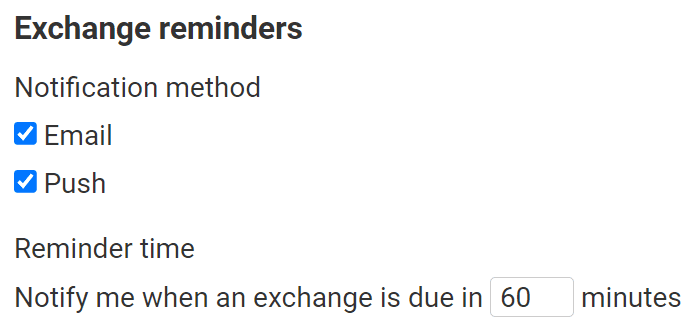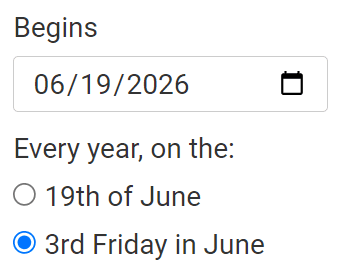Kentucky Parenting Time Schedules (Visitation)
Parents who are separating or divorcing should have a parenting schedule. It creates consistency for both of you and your child.
Think through your schedule carefully and write it clearly. You can propose one to the court separately or together as part of a parenting plan that describes how you'll parent.
Once the court orders a schedule, you have to stick to it, though you can make minor adjustments as needed.
How you get a parenting time schedule
File your divorce or custody case. In Kentucky, parenting time affects child support, so usually all these elements are decided together as part of the case.
If you've reached agreement with your co-parent, tell the judge what you both want. You can propose a schedule when you first file your case or as soon as you're ready. The judge is likely to approve an agreement that serves your child's best interests.
If you haven't reached agreement yet, you should still write a proposal to help you and your co-parent stay focused on what you're trying to settle. During negotiations, you may want to keep your proposal between you, your co-parent, and your lawyers and mediator (if any). Before too much time passes, however, you should both submit your proposed schedules to the court. You could have a trial to let the judge decide.
Often, local courts — especially in large counties — publish scheduling guidelines. See what's listed for your county in Kentucky's Local Rules of Practice. You may find suggestions within the court rules or in a separate document. If you don't find what you're looking for, ask the court.
Many parents create their custody calendars with the Custody X Change online app, a tool that lets you enter repeating schedules and customize for holidays, summer breaks and one-time changes. You can print your proposed schedule for court.
How to choose the right schedule for your family
Your child is unique, and every co-parenting arrangement is different.
Babies need to see both parents at frequent intervals, while most older children can go without a visit for longer periods of time. Learn about appropriate age-based schedules.
If you live far apart, you'll need a schedule that works for long-distance parents.
You'll also need to consider your work responsibilities so you pick a parenting schedule that's practical for you.
Equal time
Kentucky courts officially prefer to order equal parenting time unless there's a reason why another visitation arrangement would be better for the child.
Your local court may have a schedule they tend to order, like alternating weeks.

You can customize this to fit your situation with Custody X Change.
However, there are many ways to split time 50/50.
Parents who can do midweek exchanges may receive a 2-2-3 schedule. This involves two days with one parent, two with the other, then three with the first parent — then switching the order for the second week.

You can customize this to fit your situation with Custody X Change.
Unequal time
Sometimes parents can't share equal time — for example, because it would interrupt their child's schooling or because one parent is not capable. In these cases, the court will try to order as close to equal time as possible and advisable.
As a minimum amount of visitation when each parent is fit, Kentucky courts like to see roughly an 80/20 split. This has financial consequences because the Kentucky child support calculation includes parenting time when both parents have at least 20 percent of overnights.
The judge may order alternate weekends with a midweek daytime visit (an arrangement that local court rules often use as an example of minimum visitation).

You can customize this to fit your situation with Custody X Change.
Turning the midweek visit into an overnight is one way to extend the visiting parent's time. This is closer to a 70/30 split.

You can customize this to fit your situation with Custody X Change.
Putting in details
Describing a schedule may seem easy, but be sure to think it through. Otherwise, you may regret overlooking something important. Remember that you can agree to supporting details, like communication between co-parents, in a parenting plan.
Exchanges
Decide where you'll meet for exchanges and how you'll advise each other if you're running late. These details can go in your parenting plan.
Specify the exact time of the exchange. Custody X Change can send you a notification.

You can customize this to fit your situation with Custody X Change.
Holidays
You may feel it's obvious that Mother's Day should go to a mom and Father's Day to a dad. And if you're of separate faiths, you may expect to have parenting time on your own religious holidays. Still, put this on paper so you and your co-parent are clear about expectations.
For holidays to which neither parent claims the sole right, it's common in Kentucky to alternate years. For example, your child might trick-or-treat on Halloween with one parent in even years and with the other parent in odd years.

You can customize this to fit your situation with Custody X Change.
Summer breaks
Summer breaks can have their own repeating schedule. For example, you might have a 2-2-3 schedule during the school year, while in summer you could have two weeks to one parent, two weeks to the other to allow for vacation travel.

You can customize this to fit your situation with Custody X Change.
Special circumstances
If a judge decides that one parent's visits present a risk to the child, they may order supervised visitation.
If the parents can't interact responsibly, a judge may require that parents exchange the child at a government building like a courthouse. Kentucky refers to this as a safe child drop-off location.
Grandparents can seek a court order for visitation. They don't automatically have the right to see the child.
What happens if you don't have a schedule
Not all co-parents receive a parenting schedule as part of their court order.
For example, in Hopkins County, the court prefers to let parents schedule as they go, as long as they have the "maturity, personality, and communication skills" to do so. This approach is called "reasonable visitation, upon reasonable notice." When parents want or need more structure, Hopkins County orders a specific schedule.
Some co-parents share parenting time generously without a written schedule. But most run into problems, and when they disagree on how visits should happen, the visits may not happen at all. It's wise to write down the details and have your schedule turned into a court order.
The easiest way to make a schedule
If you're like most parents, creating a parenting time schedule will feel daunting. How do you make something that meets legal requirements and doesn't leave any loose ends?
The Custody X Change app makes it easy. Either customize a schedule template, or click and drag in your custody calendar to make a schedule from scratch.

You can customize this to fit your situation with Custody X Change.
Then watch a full description appear in your parenting plan.

You can customize this to fit your situation with Custody X Change.
You and your co-parent can keep using the app to be notified of upcoming exchanges and to share your minor rescheduling adjustments.
The combination of a visual and written schedule easily communicates who has the child when. Take advantage of Custody X Change to make your schedule as clear and thorough as can be.
